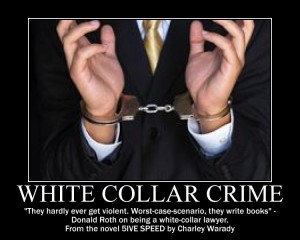Recent Press Releases from the United States Attorney’s Office, Eastern District of Missouri:
May 09, 2014: California Subcontractor Pleads Guilty to Fraud Involving Boeing Contracts
ST. LOUIS, MO—William Boozer, a Boeing subcontractor, pled guilty to wire fraud in connection with a bribery/kickback scheme involving Boeing military aircraft parts during November 2009 through February 2013.
According to Boozer’s plea agreement, between November 2009 and February 2013, Boozer requested the procurement officer for Boeing, Deon Anderson, provide him with non-public competitor bid information and historical price information in connection with Boeing military aircraft part purchase order requests for quotes. Anderson gave the information to Boozer to be used in preparing and submitting bids on behalf of Globe Dynamics in response to approximately sixteen different Boeing requests for quotes relative to various purchase orders, in exchange for cash payments.
March 31, 2014: Office Manager of Moberly Funeral Home Indicted on Fraud Charges
ST. LOUIS, MO—Beverly Susan Rene Smith was indicted by a federal grand jury on charges involving her alleged theft of approximately $176,000 from Million-Taylor Funeral Home. These funds were intended to cover customer’s funeral expenses.
According to the indictment, Smith was hired by James Taylor, Sr., the original owner of the Million-Taylor Funeral Home (MTFH) in Moberly, MO. Smith was hired as the office manager, a job she held from 2001 to June 2012. The indictment alleges that after James Taylor, Sr. died in 2006, Smith concealed the existence of an escrow account from other MTHF employees. On several occasions Smith took the payments that were sent to MTHF for funerals, and instead of depositing them into the general fund, she deposited the funds into the escrow account. Smith was able to withdraw funds from the escrow account undetected to use for her personal use. She hid the withdrawals by manipulating the financial records of MTHF.
January 27, 2014: Former Chief of St. Louis Park Rangers Sentenced on Fraud Charges
ST. LOUIS, MO—Thomas Stritzel, former chief of the St. Louis Park Rangers, was sentenced to 36 months in prison on charges that he and Joseph Vacca, former deputy commissioner of the St. Louis Parks Division, defrauded the city of St. Louis of approximately one-half million dollars by submitting false invoices for materials and services supplied to the Parks Division.
According to court documents at the time of their guilty pleas, from January 1, 2005 to December 31, 2012, Vacca and Stritzel embezzled funds of the city of St. Louis based upon the submission of sham and false invoices, which included false charges of approximately $472,722. Vacca and Stritzel set up a sham company called Dynamic Management and then funneled city funds received through the submission of false and sham invoices to Dynamic Management’s bank account. They then used those fraudulently obtained funds for their own personal use, including leasing personal vehicles, payment of fuel costs, and the payment of personal credit card charges.

The Association of Certified Fraud Examiners (ACFE) in its 2012 Report to the Nations (http://www.acfe.com/rttn-highlights.aspx), internal fraud remains a significant threat to small businesses. Their survey found that smaller organizations suffered the largest median loss. This is primarily due to fewer anti-fraud controls than larger businesses. The median loss in their study was $140,000, with almost half of victim businesses never recovering any of their losses.
What Types of Fraud Can Affect a Business?
Internal Fraud
- Manipulation of Financial Statements: False expense reports; Concealed liabilities; Backdating transactions; Unauthorized acquisitions
- Misappropriation of Assets: Cash theft; Skimming; Payroll fraud; Personal use of company funds; Pilfering
- Corruption: Bribery and Kickbacks; Intellectual Property Theft; Embezzlements; Bid rigging; Conflicts of Interest
External Fraud
- Dishonest Vendors
- Customer bad checks / credit card frauds
- Identity-Theft
What Can a Small Business Do to Protect Itself from Fraud?
Never allow just one employee uncontrolled access to financial records without regular oversight and verification. Small businesses often use a family member, trusted friend, or long-time employee as the office manager, bookkeeper, and accountant. Having one employee, friend, or family member open the mail, write checks, pay bills, deposit funds, reconcile bank accounts, and maintain the books is a recipe for disaster. Dual control and regular independent review of company finances is crucial to preventing fraud.
Contract with an outside firm for accounting and bookkeeping services. Often, small business owners feel they cannot afford such a service. As we see in the U. S. Attorney press releases, losses sustained by fraud can far exceed the costs of an independent accounting firm and auditor.
Be aware of behavioral red flags that may indicate problems. The below traits are not definitive indicators that an employee is committing fraud. However, they have been shown to be traits in persons who have committed internal fraud, and may warrant a closer evaluation of your employee and their job duties.
- An employee living beyond the means of their known income.
- An employee experiencing severe financial difficulties.
- An employee experiencing severe emotional upheaval (divorce, death, etc.)
- An obsession with gambling.
- An employee who forgoes vacation time and paid time off.
- An unwillingness to share work
- Excessive control issues
- Unusually close relationship with contractors or vendors
- Employee with financial record responsibility who regularly “takes work home” without a valid reason.
- Confrontational and or secretive when asked about their work.
- Numerous excuses for not producing, or delaying, financial reports.
As a business owner, it is your responsibility to set the tone for your employees. Honesty and integrity is contagious. A strong policy stating your company values is encouraged.
If you suspect your business is the victim of fraud, or for a fraud risk assessment of your business, contact Simpson Security and Investigative Advisory Group, LLC. Our network of fraud professionals can assist you in protecting your investment and securing your future.

